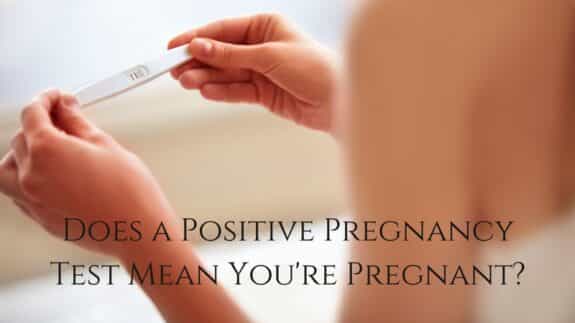If you have recently taken a pregnancy test and registered positive, you may be wondering just how accurate the test is. Perhaps you’re not ready for a new baby, or maybe you’ve experienced a lot of disappointment. Either way, your concerns are valid – and there are, in fact, several reasons that a woman may register a positive pregnancy test, even when she isn’t. Learn more about false positives and when it might warrant a trip to your doctor in the following sections.
Chemical Pregnancy
Chemical pregnancies are when the body experiences a burst in hCG hormones because an egg has been fertilized but was unable to implant or grow properly. Too much progesterone at the time of implantation, fibroids, past uterine infections, and a whole host of other issues may cause it, but it typically goes undetected since the body tends to reject it quickly. However, the elevation of hormones may register on some of the more sensitive at-home pregnancy tests, especially if you took it before you missed your period. Testing after you’ve expected your period can reduce the chances of experiencing this type of false positive.
Ectopic Pregnancy
An ectopic pregnancy is a lot like a chemical one, only the embryo in this situation has become trapped inside the fallopian tubes. Otherwise known as a “tubal pregnancy,” this situation can quickly become dangerous if the body does not dispel the embryo. Visit your doctor if you have registered positive on a pregnancy test and are experiencing pain in your lower abdomen or back, dizziness or fainting, pressure on your rectum, nausea (with or without vomiting), or sore breasts. You should also visit your doctor if you experience these symptoms with a negative pregnancy test, as not all ectopic pregnancies register a positive reading.
Miscarriage
As a fetus and its placenta grows, a woman’s hCG hormone levels rise. Those levels do start to recede once the baby is born, or if the woman experiences a miscarriage, but it takes time. So, if you have recently experienced a miscarriage and suspected that you might be pregnant again, you could be registering a false positive. Try testing again in a couple of weeks, and then once more in another two weeks if you are still registering positive. If, after that, you still have positive tests, consider calling your doctor to check for an active pregnancy.
Faulty Tests and User Error
Like most consumer products, at-home pregnancy tests can be faulty. They also require you to use them correctly; any failure to do so could result in a false positive or negative. Taking the test too early in a cycle is the most common mistake, but over-diluted urine, not keeping the stick in your urine stream long enough, or not waiting the appropriate amount of time for the test to finish are common user issues as well. Ensure you read the instructions carefully, take the test only after you have missed your period, and take the test first thing in the morning – when your urine is more concentrated – to avoid them when taking your next pregnancy test.
Medical Conditions and Medications
Certain medical conditions and medications can cause a false positive on a pregnancy test – especially if the test is taken too early. Birth control and fertility medications are the most common medicines to watch out for, but some antipsychotics, diuretics, and even antihistamines can cause you to register a false positive. In regard to health conditions, consider making an appointment with your doctor as most do require prompt medical treatment (urinary tract infections, kidney disease, and ovarian cysts are just a few examples).
Evaporation Lines in the Testing Window
Some at-home tests are prone to evaporation lines, or lines that occur once the test has been saturated. If this occurs, it may appear that the test is positive, even if it is negative. You may see a clear or faint, colorless line, or you could see a light, colored line that matches the test. Either way, an additional test, preferably at least a week later, should give you confirmation.







